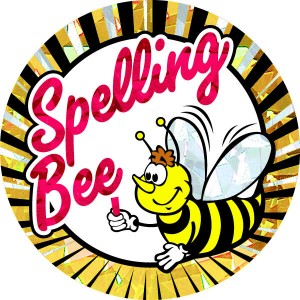
Well, ladies and gentlemen, the time has come yet again for that annual celebration of home-schooled religious wingnuts, first-generation-immigrant-over-parented-over-achievers, and all-purpose Asperger spectrum adolescents: the Scripps Spelling Bee.
An interesting–if borderline xenophobic/racist–article in Slate reminded me of this. “Why Are Indian Kids So Good at Spelling? Because they have their own minor-league spelling bee circuit” makes the case for, well, uh, why Indian kids are so good at the spelling bee. Apparently there is a network of pre-Scripps spelling tournaments funded by something called the North South Foundation:
The NSF circuit consists of 75 chapters run by close to 1,000 volunteers. The competitions, which began in 1993, function as a nerd Olympiad for Indian-Americans—there are separate divisions for math, science, vocab, geography, essay writing, and even public speaking—and a way to raise money for college scholarships for underprivileged students in India. There is little financial reward for winners (just a few thousand dollars in college scholarships) compared with the $40,000 winning purse handed out each year by Scripps. Still, more than 3,000 kids participated in NSF’s spelling events this year due in part to what NSF founder Ratnam Chitturi calls a sort of Kavya Effect. “Most American kids look up to sports figures,” he says. “Indian kids are more interested in education, and they finally have a role model.”
See? Cheating.

Well, based on my anecdotal evidence, I would take issue with the suggestion that Indian kids are more interested in education than, say, sports.
I had the good fortune to live in India for a year in 1981 where I attended a local Jesuit school for 9th grade. My brother and I were the only non-native kids there, but fortunately (I suppose) the school was taught entirely in English. They did let me skip the Sanskrit classes which were taught mainly in Hindi. That period I went to the library and read about the Vietnam war. True story.
The expectations on the students were unquestionably far in excess of what was expected in American schools, both in the volume of material covered and the amount of homework required. It wasn’t until I went to Law School that I was devoting as much time each day to studying as I was for that year. On the other hand the requirements were manageable even for a student largely the product of American public schools. The main difference being that it would have been difficult to fit in the volume of TV and video games (Atari) I would have indulged in had I been stateside. So the kids (including me) were definitely committed to schoolwork.
Moreover, the parents of my classmates took education very seriously. Very seriously. Often, to my outsider’s eye, far too seriously.
But despite all the high expectations from teachers and parents, the kids themselves were far, far more interested, to a man, in sports, entertainment, music, girls, etc. The pressure to excel in academics was in no way internalized. They treated their education exactly the way my I did; it was just what you had to get through in order to get your parents and teachers off your back so you could go do something fun.
Now I am sure that there are Indian kids who are more interested in education than in sports. But I would suggest that even in India those kids are known as “dorks”, just like everywhere else in the world.